Resources
 Improving Media Coverage and PublicPerceptions of African-American Men and Boys. As a result of its research on media coverage and public perceptions of African American men and boys, The Opportunity Agenda has developed guidelines for groups seeking fairer portrayals. Recommendations include focusing on “full and accurate” depictions of black males rather than “positive” or “negative” coverage and encouraging in-depth investigations of systemic causes of unequal opportunity, which ultimately harms the entire society
Improving Media Coverage and PublicPerceptions of African-American Men and Boys. As a result of its research on media coverage and public perceptions of African American men and boys, The Opportunity Agenda has developed guidelines for groups seeking fairer portrayals. Recommendations include focusing on “full and accurate” depictions of black males rather than “positive” or “negative” coverage and encouraging in-depth investigations of systemic causes of unequal opportunity, which ultimately harms the entire society
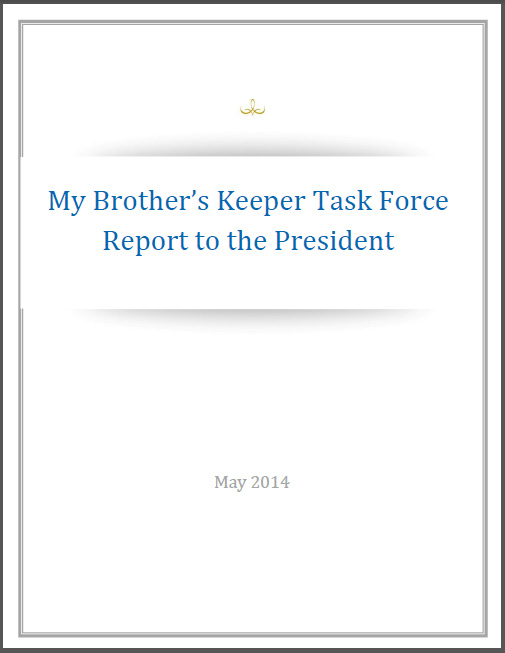 My Brother’s Keeper Task Force Report to the President. In this first report on the My Brother’s Keeper Initiative, launched by President Barack Obama in February 2014, the supervising task force provides an evaluation of the first 90 days of the effort and offers an initial set of recommendations for improving life outcomes for African American men and boys. Calls for change include better implementation of proven strategies and investment in innovative programs, addressing areas such as family support, education and employment.
My Brother’s Keeper Task Force Report to the President. In this first report on the My Brother’s Keeper Initiative, launched by President Barack Obama in February 2014, the supervising task force provides an evaluation of the first 90 days of the effort and offers an initial set of recommendations for improving life outcomes for African American men and boys. Calls for change include better implementation of proven strategies and investment in innovative programs, addressing areas such as family support, education and employment.
 Poverty and Race through a Belongingness Lens. Civil rights scholar john a. powell looks at ways to change poverty narratives and structures that can help break our complicity with this seemingly intractable problem. This includes examining how race is a significant component in understanding and addressing poverty.
Poverty and Race through a Belongingness Lens. Civil rights scholar john a. powell looks at ways to change poverty narratives and structures that can help break our complicity with this seemingly intractable problem. This includes examining how race is a significant component in understanding and addressing poverty.
 Portrayal and Perception - Two Audits of News Media Reporting on African American Men and Boys reveals coverage that is at odds with how the black community views African American males and how they view themselves. The Endowments-commissioned report contains two studies: “African American Men and Boys, Pittsburgh Media Audit” by Meyer Communications LLC, and “Study of the Media’s Coverage of African American Males in Pittsburgh” by The Pew Research Center’s Project for Excellence in Journalism.
Portrayal and Perception - Two Audits of News Media Reporting on African American Men and Boys reveals coverage that is at odds with how the black community views African American males and how they view themselves. The Endowments-commissioned report contains two studies: “African American Men and Boys, Pittsburgh Media Audit” by Meyer Communications LLC, and “Study of the Media’s Coverage of African American Males in Pittsburgh” by The Pew Research Center’s Project for Excellence in Journalism.
.jpg) The executive summary of “Cultural Responsiveness, Racial Identity and Academic Success: A Review of Literature” provides an overview of the approach and findings of the study.
The executive summary of “Cultural Responsiveness, Racial Identity and Academic Success: A Review of Literature” provides an overview of the approach and findings of the study.
 Cultural Responsiveness, Racial Identity and Academic Success: A Review of Literature, June 2009. This Endowments-commissioned report looks at educational strategies that use students’ cultures and the role of ethnic identity in promoting resilience and academic success. Researchers Mary Stone Hanley of George Mason University and George Noblit of the University of North Carolina, Chapel Hill, reviewed literature on four concepts – culturally responsive pedagogy, positive ethnic socialization, resilience and academic success – and examined research on the connections among them, with an emphasis on arts programming.
Cultural Responsiveness, Racial Identity and Academic Success: A Review of Literature, June 2009. This Endowments-commissioned report looks at educational strategies that use students’ cultures and the role of ethnic identity in promoting resilience and academic success. Researchers Mary Stone Hanley of George Mason University and George Noblit of the University of North Carolina, Chapel Hill, reviewed literature on four concepts – culturally responsive pedagogy, positive ethnic socialization, resilience and academic success – and examined research on the connections among them, with an emphasis on arts programming.
 The Impact of Racial Trauma on African Americans, Feb. 16, 2010. Pittsburgh psychologist Walter Howard Smith, Jr., Ph.D., prepared this paper for the Endowments’ African American Men and Boys Advisory Board to provide a psychological perspective that uses a trauma model to understand the impact of racial experiences on how African Americans function in the United States.
The Impact of Racial Trauma on African Americans, Feb. 16, 2010. Pittsburgh psychologist Walter Howard Smith, Jr., Ph.D., prepared this paper for the Endowments’ African American Men and Boys Advisory Board to provide a psychological perspective that uses a trauma model to understand the impact of racial experiences on how African Americans function in the United States.
 “Joaquin’s dilemma” - Understanding the link between racial identity and school-related behaviors. Pedro Antonio Noguera, a professor in the Steinhardt School of Education at New York University, examines how students’ growing awareness of racial identity in adolescence can affect their academic performance as they seek peer acceptance. Noguera also recommends strategies to educators on how to promote both positive racial identity and academic achievement among African American and Latino high school students.
“Joaquin’s dilemma” - Understanding the link between racial identity and school-related behaviors. Pedro Antonio Noguera, a professor in the Steinhardt School of Education at New York University, examines how students’ growing awareness of racial identity in adolescence can affect their academic performance as they seek peer acceptance. Noguera also recommends strategies to educators on how to promote both positive racial identity and academic achievement among African American and Latino high school students.
 The Trouble with Black Boys: The Role and Influence of Environmental and Cultural Factors on the Academic Performance of African American Males. Urban education expert Pedro Antonio Noguera analyzes how environmental and cultural forces influence black males’ perceptions of schooling and how those perceptions influence their behavior and performance in the classroom.
The Trouble with Black Boys: The Role and Influence of Environmental and Cultural Factors on the Academic Performance of African American Males. Urban education expert Pedro Antonio Noguera analyzes how environmental and cultural forces influence black males’ perceptions of schooling and how those perceptions influence their behavior and performance in the classroom.
 Breaking Barriers: Plotting the Path to Academic Success for School-Age African-American Males, 2008. Ivory A. Toldson, a senior research analyst at the Congressional Black Caucus Foundation and an associate psychology professor at Howard University, looks at results from four national surveys to explore factors that improve educational outcomes for African American males. The areas examined were family, school, social and environmental conditions, and personal and emotional factors.
Breaking Barriers: Plotting the Path to Academic Success for School-Age African-American Males, 2008. Ivory A. Toldson, a senior research analyst at the Congressional Black Caucus Foundation and an associate psychology professor at Howard University, looks at results from four national surveys to explore factors that improve educational outcomes for African American males. The areas examined were family, school, social and environmental conditions, and personal and emotional factors.
 Breaking Barriers 2: Plotting the Path Away from Juvenile Detention and Toward Academic Success for School-age African American Males, 2011. In his second national “Breaking Barriers” study, Professor Ivory Toldson analyzes the responses of 4,470 school-age black males from a range of backgrounds to a survey about their life circumstances and choices. The report’s goal is for teachers, school administrators, families, community leaders and policymakers to use the findings to create educational and social environments that will encourage African American males to achieve higher levels of academic success.
Breaking Barriers 2: Plotting the Path Away from Juvenile Detention and Toward Academic Success for School-age African American Males, 2011. In his second national “Breaking Barriers” study, Professor Ivory Toldson analyzes the responses of 4,470 school-age black males from a range of backgrounds to a survey about their life circumstances and choices. The report’s goal is for teachers, school administrators, families, community leaders and policymakers to use the findings to create educational and social environments that will encourage African American males to achieve higher levels of academic success.
 Why We Can’t Wait - A Case for Philanthropic Action: Opportunities for Improving Life Outcomes for African American Males. The Ford Foundation commissioned analysts Marcus Littles, Ryan Bowers and Micah Gilmer to highlight the efforts of researchers, direct service providers and policy advocates working to turn around the life prospects for African American young men. It provides a representative sample, rather than a complete listing of state and national projects focused on policy, practice and knowledge production.
Why We Can’t Wait - A Case for Philanthropic Action: Opportunities for Improving Life Outcomes for African American Males. The Ford Foundation commissioned analysts Marcus Littles, Ryan Bowers and Micah Gilmer to highlight the efforts of researchers, direct service providers and policy advocates working to turn around the life prospects for African American young men. It provides a representative sample, rather than a complete listing of state and national projects focused on policy, practice and knowledge production.
 The Consequences of Structural Racism, Concentrated Poverty and Violence on Young Men and Boys of Color, 2011. Carol Silverman, Michael Sumner and Mary Louise Frampton, researchers with the Thelton E. Henderson Center for Social Justice at the University of California’s Berkeley Law School, examine the structural and institutional elements that studies indicate are the true root causes of violence among boys and men of color.
The Consequences of Structural Racism, Concentrated Poverty and Violence on Young Men and Boys of Color, 2011. Carol Silverman, Michael Sumner and Mary Louise Frampton, researchers with the Thelton E. Henderson Center for Social Justice at the University of California’s Berkeley Law School, examine the structural and institutional elements that studies indicate are the true root causes of violence among boys and men of color.
 Understanding the Education Trajectories of Young Black Men in New York City. Funded by the Black Male Donor Collaborative, New York University professor Pedro Antonio Noguera and Columbia University professor Ron Mincy researched the characteristics of effective programs in New York City for African American male youth.
Understanding the Education Trajectories of Young Black Men in New York City. Funded by the Black Male Donor Collaborative, New York University professor Pedro Antonio Noguera and Columbia University professor Ron Mincy researched the characteristics of effective programs in New York City for African American male youth.
Websites:
My Brother’s Keeper Playbook
"The Money Behind a Push to Bolster Black Male Leaders Across the U.S." by Kiersten Marek, Inside Philanthropy
Kirwin Institute for the Study of Race and Ethnicity at Ohio State
Promoting Academic Success (PAS) of Boys of Color
Resources for Black Males – Donna Y. Ford, PhD., Vanderbilt University
Health Provider Toolkit for Adolescent and Young Adult Males
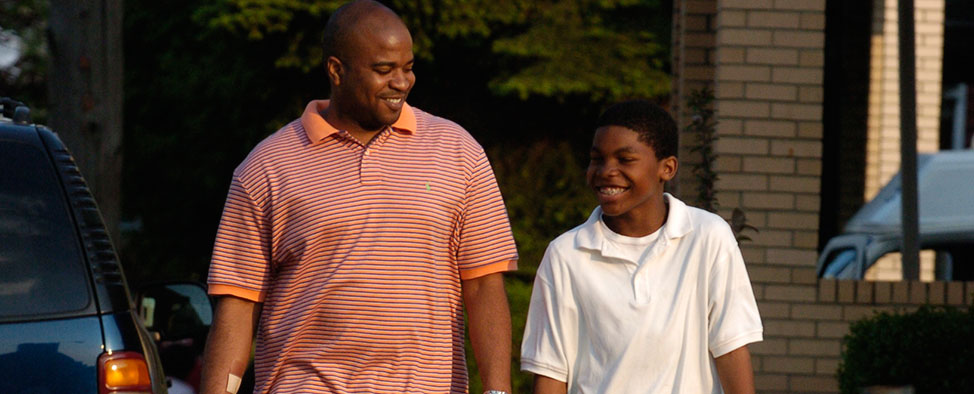
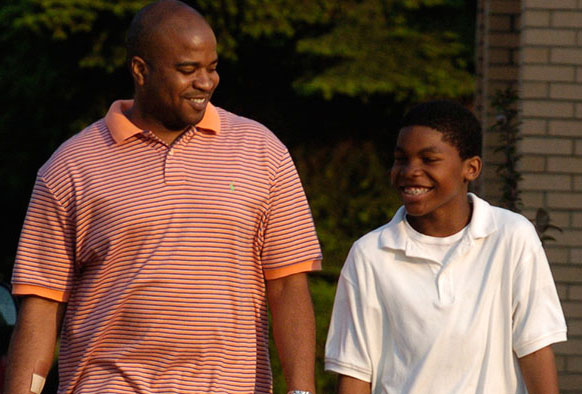 Photo by Steve Mellon
Photo by Steve Mellon

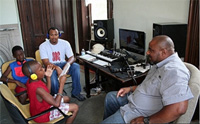
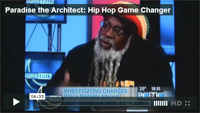
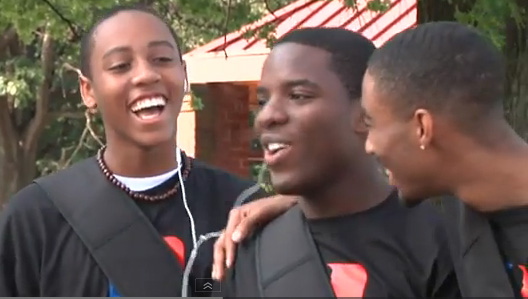




.jpg)





 Breaking Barriers 2: Plotting the Path Away from Juvenile Detention and Toward Academic Success for School-age African American Males
Breaking Barriers 2: Plotting the Path Away from Juvenile Detention and Toward Academic Success for School-age African American Males

